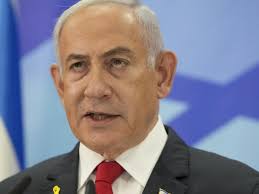Understanding Benjamin Netanyahu: His Role in Israeli Politics

Introduction
Benjamin Netanyahu, the Longest-serving Prime Minister of Israel, is a pivotal figure in Israeli and global politics. His leadership has significantly shaped Israel’s diplomatic relations, domestic policies, and security strategies. As tensions in the Middle East continue to evolve, understanding Netanyahu’s role and influence is crucial for grasping the complexities of modern Israel.
Political Journey
Netanyahu began his political career in the late 1980s, becoming Israel’s ambassador to the United Nations before entering the Knesset in 1988. Serving as Prime Minister first from 1996 to 1999, he has been a dominant force in Israeli politics, eventually returning to power in 2009. His leadership is characterised by a strong right-wing approach, advocating for security policies, economic reforms, and a hardline stance against Iran and Hamas.
Recent Developments
In recent months, Netanyahu’s government faced significant challenges, including widespread protests over proposed judicial reforms that critics argue would undermine the independence of the judiciary. These reforms have sparked debates about democracy in Israel and highlighted divisions within the country. In response, Netanyahu has maintained a firm stance, emphasising the need for strong governance to ensure national security amid regional instability.
Implications for Israel’s Future
As Netanyahu continues to navigate the complexities of both domestic and international politics, his decisions will have lasting implications for Israel’s future. His leadership style, which often prioritises security over diplomacy, reflects the ongoing tensions with Palestinians and the broader Arab world. Additionally, Netanyahu’s interactions with global leaders, particularly in the context of foreign direct investment and technological partnerships, will shape Israel’s economic landscape.
Conclusion
Netanyahu’s political journey exemplifies the intricate dance of power in a region marked by conflict and change. With his enduring leadership, the policies he enacts will not only steer Israel’s pathway in the coming years but could also impact the wider geopolitical landscape. Observers and citizens alike should remain attentive to his moves, as they will undoubtedly play a crucial role in defining Israel’s identity and stability in the years ahead.
You may also like

Current Events: What’s Happening in Iran

The UKIP Party: Recent Developments and Future Outlook
